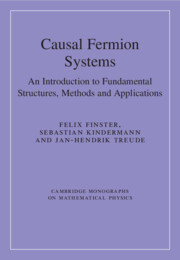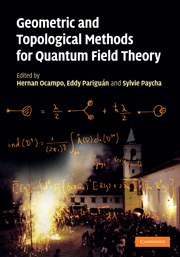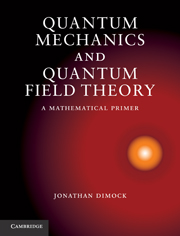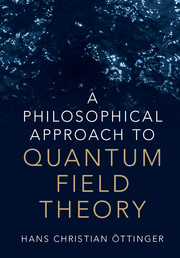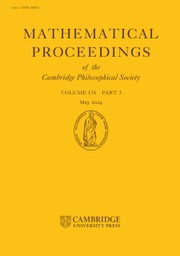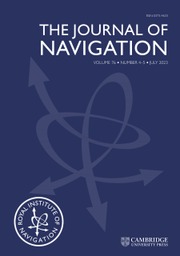Causal Fermion Systems
The theory of causal fermion systems represents a novel approach to fundamental physics and is a promising candidate for a unified physical theory. This book offers a comprehensive overview of the theory, structured in four parts: the first lays the necessary mathematical and physical foundations; the second offers an introduction to the theory and the causal action principle; the third describes the mathematical tools for analyzing causal fermion systems; and the fourth gives an outlook on the key physical applications. With relevance across mathematical and theoretical physics, the book is aimed at graduate students and researchers interested in novel approaches to the structure of spacetime and alternative perspectives to the more established quantum field theories. It can be used for advanced courses in the subject or as a reference for research and self-guided study. Exercises are included at the end of each chapter to build and develop key concepts.
- As the first comprehensive text on causal fermion systems, the book is an essential resource for anyone with an interest in novel approaches to fundamental physics
- Covers the foundational mathematical and physical aspects in detail to ensure the book is accessible to as broad an audience as possible
- Well suited as a companion to self-guided study and as a framework for courses in the subject, with exercises included in each chapter to support learning
Product details
October 2025Hardback
9781009632621
430 pages
244 × 170 mm
Not yet published - available from October 2025
Table of Contents
- How to use this book
- Part I. Physical and Mathematical Background:
- 1. Physical preliminaries
- 2. Mathematical preliminaries
- 3. Elements of operator theory
- 4. Spinors in curved spacetime
- Part II. Causal Fermion Systems: Fundamental Structures:
- 5. A brief introduction to causal fermion systems
- 6. Causal variational principles
- 7. The Euler-Lagrange equations
- 8. The linearized field equations
- 9. Surface layer integrals and conservation laws
- 10. Positive functionals
- 11. Topological and geometric structures
- Part III. Mathematical Methods and Analytic Constructions:
- 12. Measure-theoretic methods
- 13. Methods of hyperbolic partial differential equations
- 14. Energy methods for the linearized field equations
- 15. Functional analytic methods in spacetime
- 16. Fourier methods
- 17. Methods of scattering theory
- 18. Methods of perturbation theory
- 19. Methods of microlocal analysis
- Part IV. Applications and Outlook:
- 20. A few explicit examples of causal variational principles
- 21. Basics on the continuum limit
- 22. Connection to quantum field theory
- Appendix. The spin coefficients
- References
- Notation index – in order of appearance
- Notation index – thematic order
- Subject index.

